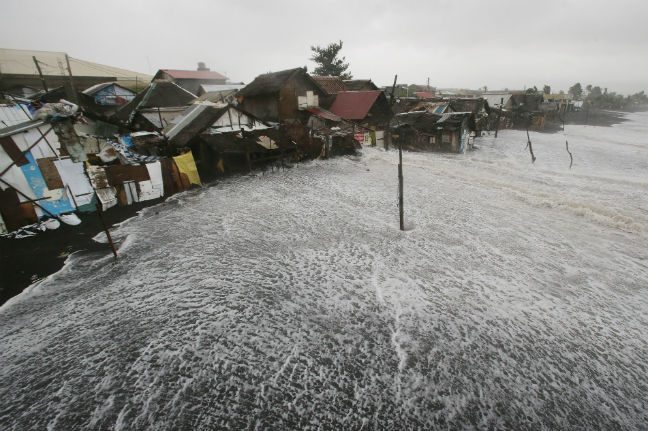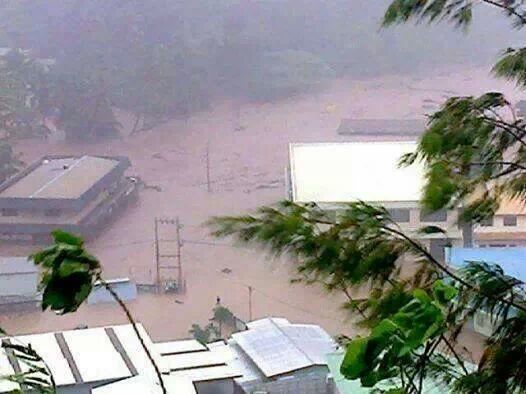
Typhoon Hagupit continues to advance across The Philippines, dumping intense rainfall and causing flooding, storm surges and high winds. Oxfam is working to ensure clean water and sanitation for affected communities and the hundreds of thousands of people seeking refuge in evacuation centres.
Oxfam’s Country Director in the Philippines, Justin Morgan, said while the number of reported fatalities was so far very small, the intense rainfall caused by the typhoon could cause dangerous flooding and landslides.
“This typhoon hasn’t finished with The Philippines yet, and there is a real risk of intense flooding and landslides in the coming days” said Justin.
“We will not know the areas of greatest need until further assessments are completed but what we do know is that in all disasters clean water is a priority and Oxfam will be working to ensure communities have access to safe water. In the short term this will include ensuring those in evacuation centres have access to water and essential items.”
Justin said many households along the path of Typhoon Hagupit were still recovering from Typhoon Haiyan, and many were still rebuilding their homes and their livelihoods.
“Eastern Visayas, where Hagupit slammed into late on Saturday night, was already one of the poorest areas in the country before Typhoon Haiyan. As many households continue to struggle to regain previous levels of income from farming and fishing, poverty and vulnerability has worsened – the last thing these people needed was another typhoon.”
Oxfam Australia’s Chief Executive Dr Helen Szoke — who was in The Philippines in the immediate aftermath of Typhoon Haiyan — said Oxfam response teams would be particularly aware of ensuring the protection of women and girls, who are the most vulnerable to the impacts of disasters.
“Based on previous disasters in The Philippines, women and girls are at increased risk of gender-based violence and human trafficking, while pregnant and breast-feeding mothers are more exposed to health risks.
“Oxfam is committed to working with government and other humanitarian partners to ensure the rights of women are upheld through any emergency response, and that their particular needs and capacities are taken into account.”
Oxfam now has 15 teams ready for deployment in Leyte, Eastern Samar and Northern Cebu. Oxfam has also pre-positioned household water kits (to enable families to make their drinking water safe), hygiene kits (comprised of basic sanitation items like antibacterial soap), and stockpiles of basic essentials to respond to the areas in greatest need.
Typhoon Hagupit is due to leave The Philippines late Wednesday. To support Oxfam’s response to Typhoon Hagupit and other humanitarian crises worldwide, please donate to Oxfam Australia’s International Crisis Fund.
Our International crisis fund ensures that we’re able to respond quickly and efficiently when an emergency occurs around the world.
